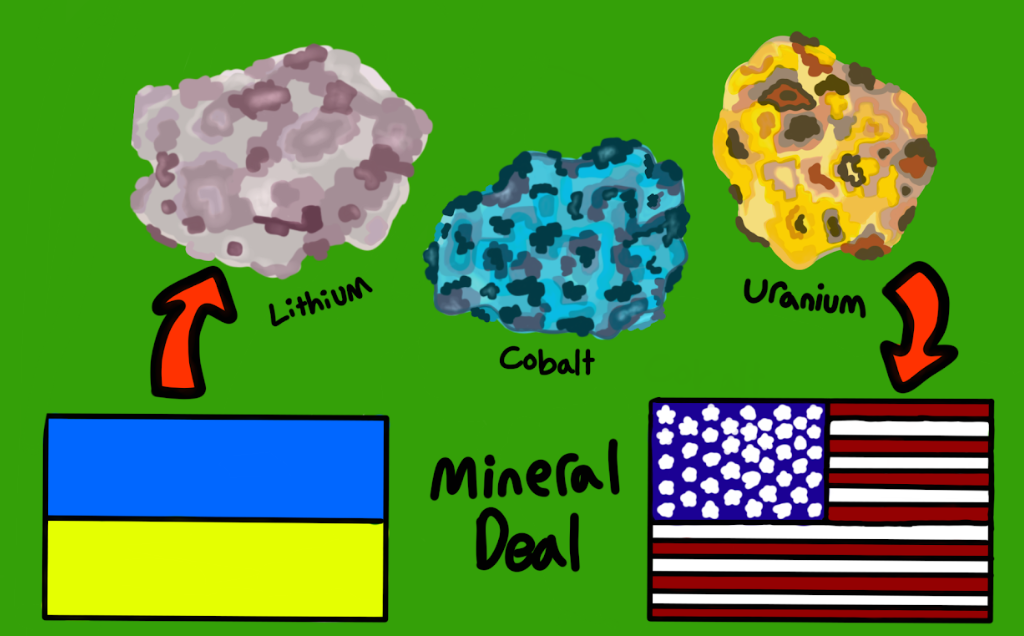You may not have heard of it yet, but the mineral deal between the United States and Ukraine has a huge impact on American citizens. But what is it exactly? This deal, signed by the Prime Minister of Ukraine, Denys Shmyhal, and President Donald Trump on April 30, 2025, will hopefully lead to partnerships between the two countries in the future. These partnerships will include joint ventures in the extraction and development of critical minerals such as lithium, cobalt, and other rare earth elements that are essential for clean energy technologies, military applications, and consumer electronics. In this deal, Ukraine will contribute half of its revenue from minerals, oil, and gas projects, except from major producers like Naftogaz. This means their revenue will be solely based on how much investment they receive, attracting investment from private sectors. Under the agreement, Ukraine will provide the U.S. with access to some of its untapped mineral reserves, while American companies will assist in modernizing Ukraine’s mining infrastructure and providing investment capital. This type of collaboration is meant to reduce American dependence on mineral imports from geopolitical rivals such as China and Russia, boosting domestic supply chains and improving national security. It could help the U.S. recuperate the billions it spent on Ukraine during its war with Russia. There may also be future implications on citizens in both counties.
For the average American, the effects of this deal might not be immediately visible, but over time, it could lead to more stable prices for electric vehicles, smartphones, and renewable energy technology. It may also create new jobs in mining, logistics, and engineering, both in the U.S. and abroad. The deal raises environmental concerns, and critics are urging strict oversight to ensure responsible sourcing of minerals and minimal ecological damage. Ukraine’s mining sector, still recovering from years of underinvestment and the impacts of war, faces significant challenges in adopting environmentally sound practices. Without proper regulations and transparency, there’s a risk that accelerated extraction could lead to deforestation, groundwater contamination, and harm to local communities. Environmental advocates are calling for joint U.S. and Ukrainian monitoring efforts, stronger environmental impact assessments, and investment in greener mining technologies. They also emphasize the importance of community engagement and safeguarding public health, especially in regions where mining operations could disrupt ecosystems or agricultural land. As this deal unfolds, ensuring that economic gains do not come at the expense of environmental integrity will be a critical indicator of both nations’ commitment to sustainable development.
Overall, the mineral deal represents a strategic tool in U.S. foreign and economic policy, with objectives of securing access to vital natural resources, strengthening geopolitical alliances, and promoting American economic interests abroad. As global demand for critical minerals continues to rise, partnerships like this could be key to maintaining American technological and industrial competitiveness in the coming decades.
























